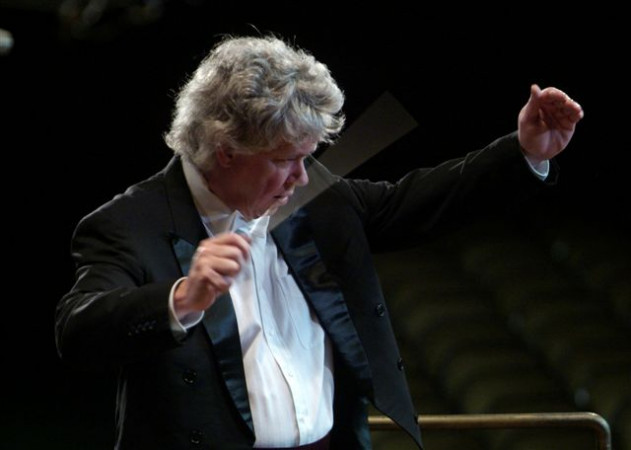
30 May 1952, Budapest - 6 November 2016, Budapest
Zoltán Kocsis began to play the piano at the age of three. He was Magda Szmrecsányi's pupil at the Metropolitan Music School between 1956 and 1963. From 1963 to 1968 he attended the Béla Bartók Specialist Music School, where his teacher was Tamás Fülep. While at this school, from 1966 onwards he also took lessons in composition in the class taught by Rezső Sugár and József Soproni. Between 1968 and 1973 he studied at the Music Academy, where his professor was Pál Kadosa. However, the impetus given to him by the musician personalities of Ferenc Rados and György Kurtág also had an important influence on his development
He won the Piano Competition of Hungarian Radio in 1970. From this time onwards he appeared in a multitude of concerts, radio and television programmes, and soon began making recordings as well, though initially only in the Hungaroton studios. His repertoire was limited in the beginning to Bach, Mozart, Beethoven, Bartók and contemporary music. Over the years, however, it gradually expanded to include Schubert, Chopin, Liszt, Brahms, Grieg, Rachmaninov, Debussy and Ravel: by the mid-eighties Kocsis became one of the most multifaceted personalities in Hungarian musical life. This openness manifested itself not only in the wealth of the repertoire: it was present from the beginning also in the diversity of his undertakings. Kocsis is not only a pianist, but also a composer, conductor, philologist; he brings out music scores and archive recordings (György Ferenczy, Dohnányi, Bartók), revises musical compositions; he is a pedagogue, and also writes criticism and musicological works.
The earliest of these activities to develop, besides playing the piano, were teaching and composing. He was appointed assistant lecturer at the Music Academy in 1973; in 1976 he became a lecturer and in 1979 Reader. The composer Zoltán Kocsis made his first public appearance in the seventies. His activities were for a long time connected with the New Musical Studio founded by Albert Simon, and the musical thinking represented by him; certain of Kocsis's compositions, however, pointed beyond the aesthetics of the Studio. His most important compositions: Bemutató (1976), Fészek (1975-76), Utolsó előtti találkozás (1981), 33 December (1983), Kopogtatások – A vacsora – Kiállítás (operas, 1984-85) Csernobil 1986 (1986), Utolsó találkozás (1990).
The fact that Kocsis began conducting was connected with the dissatisfaction he felt as a pianist with the standards of Hungarian symphony orchestras. This motivated him in 1983 to establish, together with Iván Fischer, the Budapest Festival Orchestra, thus opening a new epoch in the history of Hungarian orchestral playing. 1992 brought a turning point in the life of the ensemble: the contract signed with Budapest Municipal Council made it possible for them to institutionalize, to turn themselves from an intermittently functioning orchestra into a continuously working musical workshop. Kocsis played a determining role in the direction and the development of the programme policy of the Festival Orchestra from its founding, and from 1987 also appeared as conductor at their concerts. It was as a result of his editing and conducting activities that from 1992 the Café Concerts of the Festival Orchestra came about. These served to make the repertoire more colourful and to facilitate the discovery of hitherto neglected values. Kocsis parted from the ensemble in 1997, and became the musical director of the State Concert Orchestra – which later became the National Philharmonic Orchestra.
Zoltán Kocsis is now a prominent artist in international musical life. Following his recording work with Hungaroton, Denon, Nippon Columbia, Phonogram and Quintana, he signed an exclusive contract with Philips. Philips is the publisher of his two important series: the cycles of Bartók and Debussy piano works. His Bartók interpretations have made him an international authority in this sphere; he participates also in the preparation of the Complete Bartók Edition. A more recent inititive is the founding of the Artists Society, in whose irregular concerts he endeavours, in a symbiosis with other art forms, to bring neglected works of musical literature to public attention.
Zoltán Kocsis received the Liszt Prize in 1973, the Kossuth Prize in 1978 – and a second one in 2005 – and became holder of the titles, Meritorious Artist in 1984 and Outstanding Artist in 1990. In 1988 he was awarded the Béla Bartók–Ditta Pásztory Prize.
K. C.


